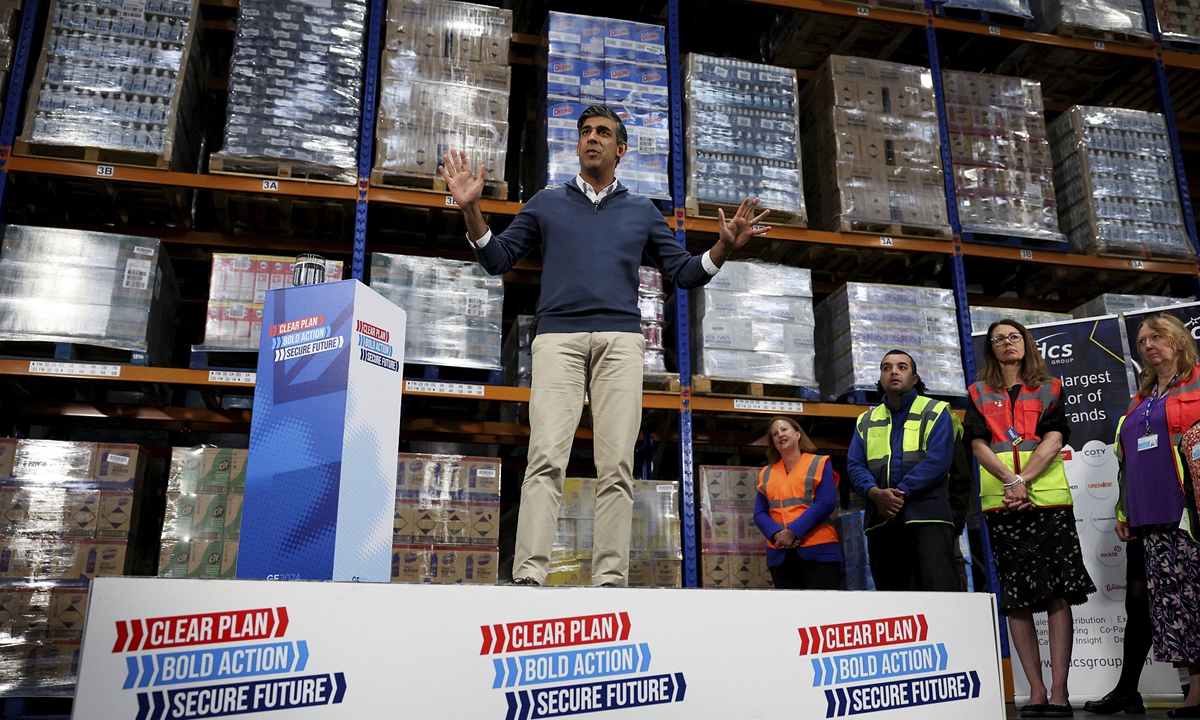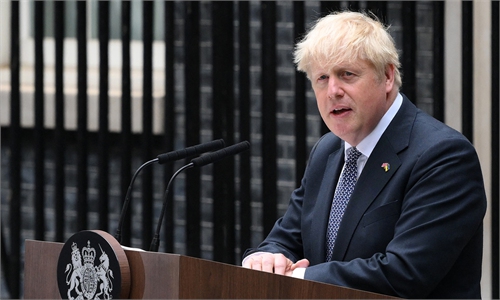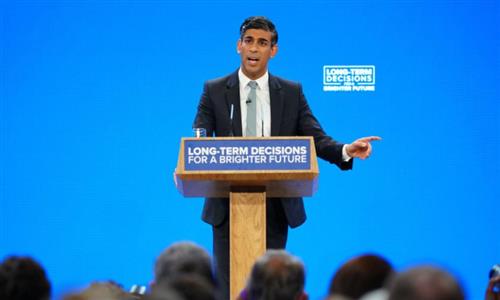Polls predict win for Labour Party at UK election; new govt hoped to adopt more pragmatic policies in China ties

British Prime Minister Rishi Sunak speaks to staff members as he visits the DCS group distribution centre as part of a Conservative general election campaign event, in Banbury, UK, July 2, 2024. Photo: VCG
The 2024 UK general election, the first national election in five years, is scheduled for Thursday, with various polls projecting the overall result of the Labour Party being on the course for a win. If the Labour Party finally comes to power, a new British government is hoped to adopt more pragmatic and realistic policies in dealing with the China-UK bilateral relations, analysts said.
Polling company Survation's central scenario indicated that Keir Starmer's opposition Labour Party could secure 484 out of the 650 seats in the British parliament, while Prime Minister Rishi Sunak's Conservative Party, which has been in power for 14 years, was predicted to win just 64 seats - the fewest seats since its founding in 1834. The right-wing Reform UK party were projected to win seven seats, Reuters reported on Tuesday.
In mid-June, a poll conducted by YouGov, a London-headquartered global public opinion and data company, also forecasted that the Labour Party is poised to win the most seats in its history in the upcoming Thursday election.
Given the results of various opinion polls, it appears highly likely that the Labour Party will win the upcoming election. Currently, support for the Conservative Party is declining, reflecting its ineffective governance and incompetence in addressing domestic issues, including the high inflation, Zhao Chen, a research fellow at the Institute of European Studies under the Chinese Academy of Social Sciences, told the Global Times on Wednesday.
Moreover, the Conservative Party's economic policies and foreign policy, for example, closely aligning with the US in the Russia-Ukraine conflict, have also failed to garner widespread approval among the British public, said Zhao.
If the Labour Party commands a majority in the Commons, it will form the next government and its leader, currently Keir Starmer, a former director of public prosecutions in England and leader of the Labour Party since April 2020, will be prime minister, according to media reports.
Mainly due to factional struggles within the Conservative Party and inadequate leadership, the UK has experienced five prime ministers in 14 years of Tory rule. From David Cameron to Theresa May, then Boris Johnson, Liz Truss, and now Rishi Sunak, the Conservative Party has seemed to undergo a carousel of internal "parades." Unfortunately, none of these Prime Ministers have successfully led the UK out of economic difficulties, said Zhao.
"Some people in the UK began to look to the Labour Party with expectations for a new set of governance and policies to alleviate their current economic and social pressures. However, even if the Labour Party wins the election, the new government will still have to face various challenges," said Zhao.
While Labour's election manifesto differs in certain areas from that of the Conservative Party, overall, it has not shown fundamental changes. This suggests that regardless of which party takes power, the UK will need to address a series of complex socioeconomic issues, requiring sustained effort and time for resolution rather than simple policy adjustments, analysts said.
Regarding the UK's relations with China under a new government, Zhao noted that given Starmer's previous remarks on China, it appears the Labour's China policy does not differ significantly from that of the Conservative Party. This indicates that British politicians are unlikely to return to the China policy adopted during David Cameron's "golden era" of bilateral relations.
Amid the trend of deglobalization and with its own competitiveness declining, the UK's wariness toward China resembles that of the US. Therefore, in the short term, it is unrealistic to expect Labour to quickly reverse the Conservative Party's cautious stance toward China if it comes into power, Zhao said.
"However, we still hope that the Labour Party can adopt more pragmatic and realistic policies in future governance and in dealing with its relations with China," said Zhao.



